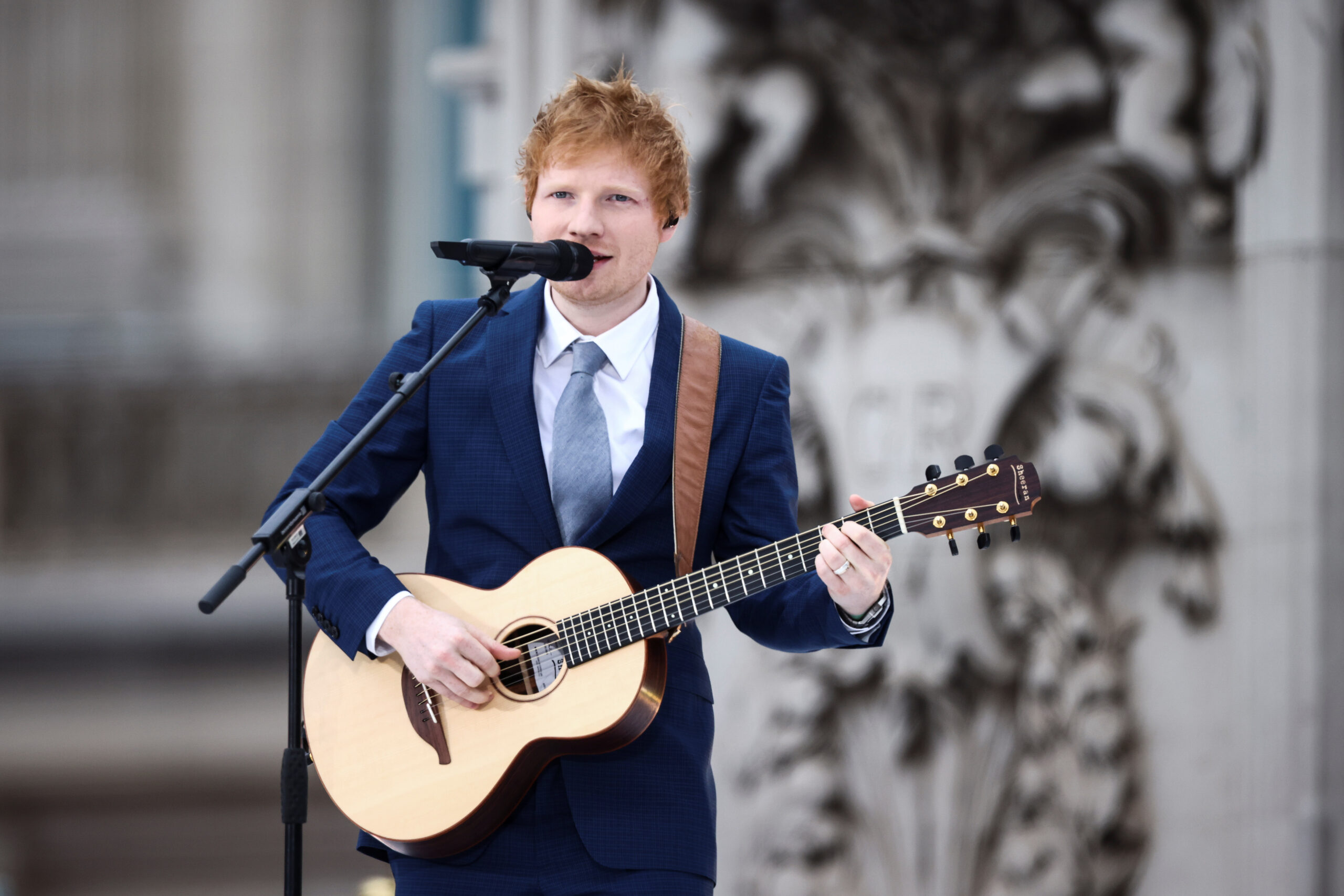Ed Sheeran faces U.S. copyright trial over Marvin Gaye’s ‘Let’s Get It On’

Singer Ed Sheeran performs the Platinum Jubilee Pageant, marking the end of the celebrations for the Platinum Jubilee of Britain’s Queen Elizabeth, in London, Britain, June 5, 2022. (REUTERS)
Jury selection is set to begin on Monday in Manhattan federal court for a trial over claims that British pop superstar Ed Sheeran owes a share of profits from his hit “Thinking Out Loud” for copying Marvin Gaye’s “Let’s Get It On.”
Heirs of songwriter Ed Townsend sued Sheeran, his label Warner Music Group and music publisher Sony Music Publishing for allegedly ripping off Gaye’s classic, which Townsend co-wrote.
The trial is the first of three Sheeran could face from lawsuits over similarities between the two hits.
Warner Music Group, Sony Music Publishing and attorneys for both sides did not immediately respond to requests for comment on the case.
Marvin Gaye collaborated with Townsend to write “Let’s Get It On,” which topped the Billboard charts in 1973. Sheeran’s “Thinking Out Loud” peaked at No. 2 on the Billboard Hot 100 in 2015.
Townsend’s heirs sued Sheeran for copyright infringement in 2017, claiming “Thinking Out Loud” copied the “heart” of Gaye’s song including its melody, harmony and rhythm.
The lawsuit said Sheeran has performed the two songs live as a medley and transitioned “seamlessly” between them.
Sheeran has argued that any similarities between the songs involve basic musical “building blocks” that are ineligible for copyright protection.
If the jury finds Sheeran is liable for copyright infringement, the Manhattan court will hold another trial to determine how much he and his labels should pay. The first trial is expected to last about a week.
The heirs said in a court filing that they received 22% of the writer’s share of Gaye’s song from Townsend. Sheeran is facing two related lawsuits from investment banker and “Bowie Bonds” creator David Pullman’s Structured Asset Sales LLC, which owns a third of Townsend’s rights in the song.
Sheeran won a trial in London last year in a separate copyright case over his hit “Shape of You.” Gaye’s heirs won a landmark verdict in 2015 over claims that the Robin Thicke and Pharrell Williams song “Blurred Lines” copied Gaye’s “Got to Give It Up.”